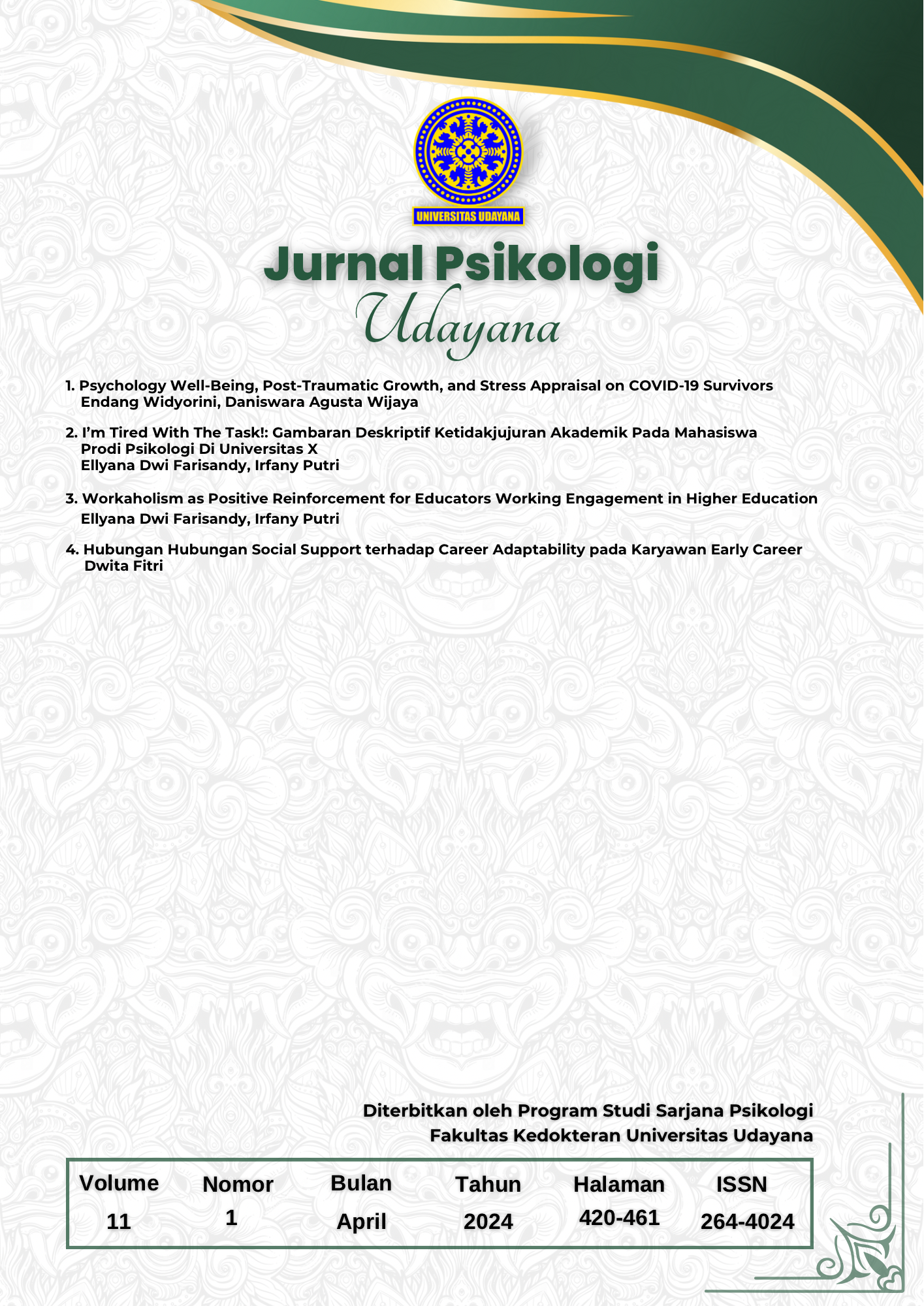Psychology Well-Being, Post-Traumatic Growth, and Stress Appraisal on COVID-19 Survivors
Abstract
The COVID-19 pandemic has certainly brought many psychosocial stressors, however, some previous studies found that some patients who have recovered from COVID-19 show positive growth psychologically. This study aims to investigate the relationship between psychological well-being, post-traumatic growth, and stress appraisal in COVID-19 survivors. Psychological Well-Being Scale 18 items, Post-Traumatic Growth Inventory, and Stress Appraisal Measure were translated into Bahasa Indonesia prior to the data collection. Those three instruments then were completed online by 136 COVID-19 survivors, ages varied between 18 years old to the elderly have confirmed COVID-19 with severe symptoms. Statistical analysis was conducted to test the hypothesis of the current study. Results show that there is no significant difference in PWB, PTG, and SA levels regarding sex, age groups, and educational background respectively. The correlation between PTG and PWB in COVID-19 survivors was found to be positively significant (r=.241;p=.005). Path analysis reveals that Post Traumatic Growth only plays a mediating role in the relationship between the dimensions of Centrality and PWB and Uncontrollable and PWB. Discussion on how different dimensions of stress appraisal affect how post-traumatic growth plays a mediating role towards better well-being among COVID-19 survivors in Indonesia is elaborated further.
Keywords: Stress Appraisal; Post-Traumatic Growth; Psychology Well-Being
Downloads

This work is licensed under a Creative Commons Attribution-ShareAlike 4.0 International License.
Authors who publish with this journal agree to the following terms:
- Authors retain copyright and grant the journal right of first publication with the work simultaneously licensed under a Creative Commons Attribution-ShareAlike 4.0 International License that allows others to share the work with an acknowledgement of the works authorship and initial publication in this journal.
- Authors are able to enter into separate, additional contractual arrangements for the non-exclusive distribution of the journals published version of the work (e.g., post it to an institutional repository or publish it in a book), with an acknowledgement of its initial publication in this journal.
- Authors are permitted and encouraged to post their work online (e.g., in institutional repositories or on their website) prior to and during the submission process, as it can lead to productive exchanges, as well as earlier and greater citation of published work (See The Effect of Open Access).













